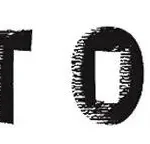TRENTON – Human Services Acting Commissioner Sarah Adelman Aug. 4 announced that the department has launched a pilot program offering wireless devices to eligible deaf and hard-of-hearing New Jersey residents.
According to a Human Services release, this program is being administered by Human Services’ Division of the Deaf and Hard of Hearing (DDHH) and will supply a limited number of wireless devices to eligible deaf and hard-of-hearing residents so they are able to access critical information, services and supports being delivered virtually, through online platforms. This includes telehealth services, emergency information, telecommunications, and other vital communication needs.
For eligible applicants, devices are free of charge. The supply of devices is limited and subject to availability and funding.
Devices currently available are two tablets, the Apple iPad and Samsung Galaxy S6 Lite, and two smartphones, the Apple iPhone XR and Google Pixel 4a.
“As more communications and services have transitioned to virtual platforms, digital access has become even more crucial for the deaf and hard of hearing community,” Adelman stated. “We are grateful for Gov. Murphy’s support to launch this program, which will close technology gaps and increase access to help support deaf and hard-of-hearing individuals across New Jersey.”
“We are dedicated to providing key supports to individuals who are deaf and hard of hearing, and we know that this pilot program will put needed devices in the hands of vulnerable individuals who may lack access to technology,” Deputy Commissioner Elisa Neira stated. “This will improve the way they engage with services, access resources and receive information.”
The pilot program stems from a funding increase for deaf and hearing individuals included in the state budget recently signed by Murphy.
“We are excited to receive this additional funding to strengthen accessibility to programs, services, and information for individuals who are deaf and hard of hearing,” Division of the Deaf and Hard of Hearing Executive Director Elizabeth Hill stated. “I look forward to seeing the impact the wireless device pilot program will have on individuals who are deaf and hard of hearing by empowering them to advocate for themselves and make informed choices.”
Individuals eligible for the pilot program must have an annual income of less than 400% of the federal poverty level, meaning that for a family of two, the income limit is $69,680. For a family of three, the limit is $87,840, and for a family of four, the new income limit is $106,000.
To qualify for the program, applicants must meet the following eligibility requirements:
- Be a New Jersey resident
- Have a documented hearing loss verified through either an audiogram signed by a licensed audiologist; or a certification of disability attached to the application signed by a licensed audiologist, physician, or other professional verifying the applicant’s hearing loss
- Information supplied on the application must be clearly printed. The form must be signed by the applicant
- Total combined household income must be less than 400% of the federal poverty level, which is based on the number of members in the household








